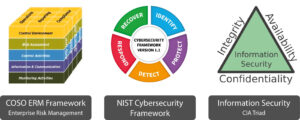Cyber Outbreak due to SMB Vulnerabilities?

Recently we’ve received the news about the vulnerability affecting the Microsoft SMB protocol and this is not the first time it had happened. SMB vulnerabilities are known to have allowed malware attacks to penetrate organisations’ networks and caused damages like infected files, data thefts and system breakdowns that cost governments and companies millions of dollars.
Remember on March 2017, Microsoft had to release a patch to curb its SMB protocol vulnerabilities. This SMB vulnerabilities have caused the most visible ransomware outbreaks like WannaCry that reigned terror around the world last five years.
Fast forward to March 10th 2020, the popular F:/ or G:/ drives that are mapped to a network file server, have become the weakest link again and Microsoft had to race against time to patch it. This latest cybersecurity lapse had showed one more time that the SMB protocol poses a lot of cybersecurity risks for companies and these risks shouldn’t be overlooked.
Why do companies still use SMB protocol?
Using SMB protocol within organisation has been a conventional method on how we use our network drive for managing and sharing files within the organisation. End users are used to it for decades and they are reluctant to change to a new tool. Also, the migration of the storage requires time and money.
Can preventive measures be less drastic and affordable before the next cyber-attack on SMB?
Deploying a secure enterprise-grade file sharing solution like EasiShare that can connect to multiple storages can help greatly reduce the exposure of the SMB vulnerability and reduce the cost while doing so. EasiShare acts like a “protective” middleware that safeguards the files that are in transit and at rest. Also, EasiShare helps you retain your current file servers and convert your SMB protocol to HTTPS for users to connect to shared drives without having to migrate any files.
With cost and lack of IT manpower in the minds of management today, organisations are hesitant to have a complete overhaul in its legacy storages that leverage on SMB protocol to share files internally via local drives for work collaboration. Additionally, a complete ban of the SMB protocol also creates potential workplace productivity issues if there’s no alternative solution implemented. This ban will limit the number of options to collaborate files that complies to organisation’s data security policies
Hence, the organisation’s management must evaluate against multiple factors (i.e. factors like government regulatory compliance, internal data security policies, long-term goals, workplace productivity, manpower and costs) that can potentially impact the organisation in the long run.
About EasiShare
EasiShare is an enterprise-grade file sync and share solution designed to securely manage, share and govern your organisation files, preventing data breaches. The platform enjoys an impressive deployment track record with the Singapore government agencies and highly regulated industries.
With our intuitive and easy to use interface, EasiShare offers a centralised platform, connecting with on-prem or cloud storages, and enabling seamless sharing and collaboration on even the most confidential information. All files are encrypted at rest and in transit. Our data centric security architecture allows controls and tracking of the files. Available as a cloud, on-premise, or hybrid service, on multiple technology platforms and operating systems, EasiShare is built to meet the needs of organization, sysadmin and end users.
Contact Us or Try Our Demo Today!




